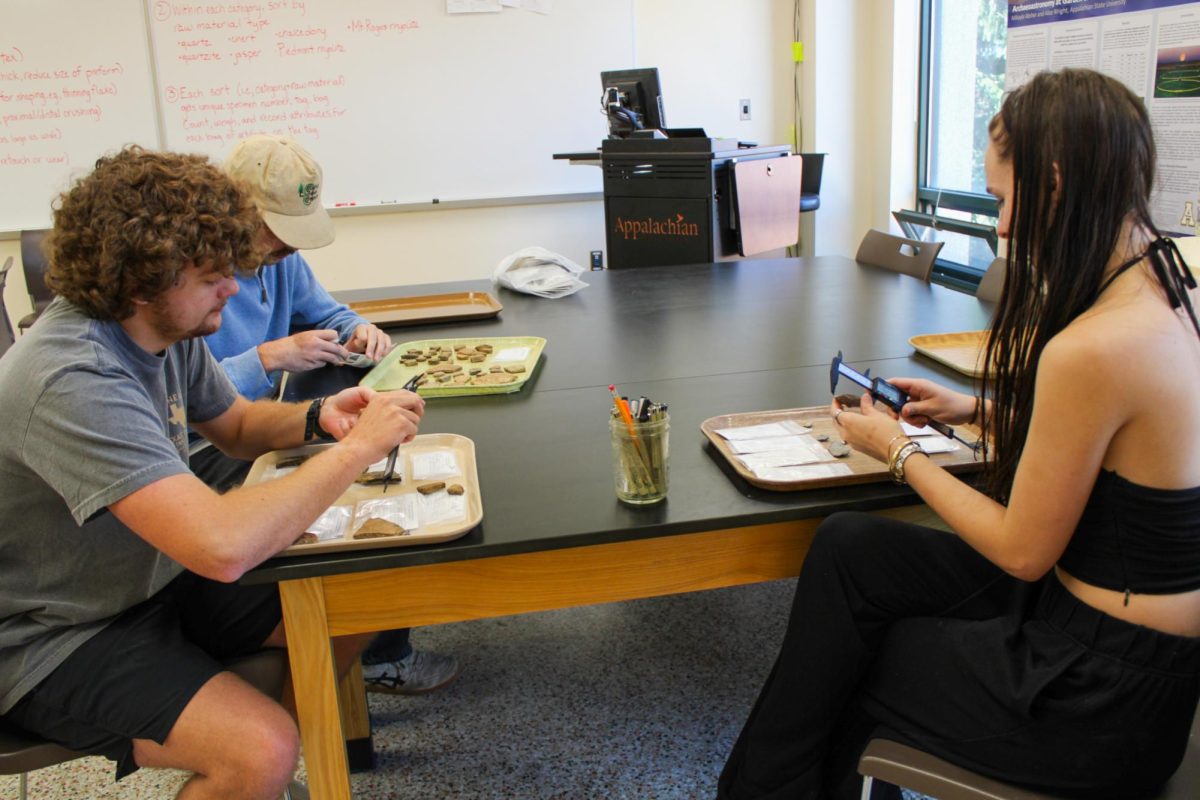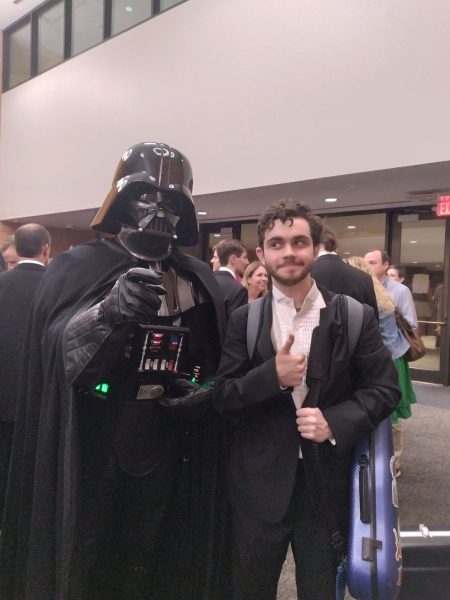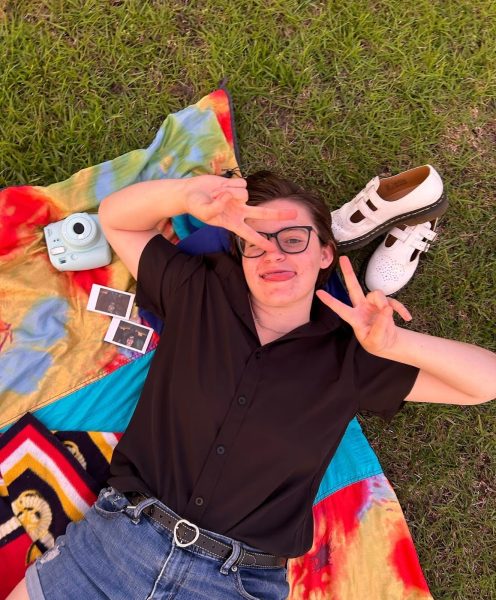Step into the 15th century, dive underwater or pick up a calligraphy brush to expand skillsets in various areas of study. App State offers a number of unique classes this fall semester to get students out of their comfort zone. The full idiom adds, “but better than a master of one.” App State offers a number of unique classes where students can gain new skills in their areas of study and explore out of their comfort zone.
Georgia Fox, an adjunct professor and anthropologist with a background in maritime archaeology, teaches Underwater Archaeology. Students learn underwater archaeology practices and 21st century technologies like remote-operated vehicles and submersibles.
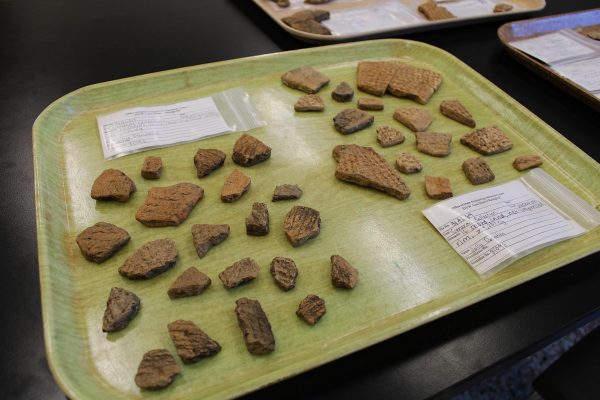
“When people think about underwater archaeology, they immediately think of shipwrecks,” Fox said. “It encompasses a whole broad spectrum of different types of sites.” Underwater archaeology also has a forensic aspect. The Defense POW/MIA Accounting Agency works to identify and recover soldiers who went missing in the Pacific Theater during World War II. Fox teaches this in the class to show the broad applications of her work as an anthropologist.
“We view the world through an anthropological lens,” Fox said. “We’re curious and holistic.”
In the Department of Language, Literatures and Cultures, Nanaka Okamura teaches Kanji and Calligraphy. This semester is Okamura’s first time teaching this class at App State, but she previously taught the content as a workshop while working as the Japan Outreach Initiative coordinator at Western Carolina University.
Okamura, who has been doing calligraphy since she was six, sees the class as a way to learn about Japanese language and culture in a more interactive manner than what online language learning apps offer.
“These days, students are more used to using tablets and phones,” Okamura said. “Writing by hand is more effective to memorize the characters.”
The class only has four materials: paper, a brush, ink and water. Students in the class will learn to use the brush and memorize the Kanji syllabary. The class does not cover Japanese grammar or mechanics, but instead focuses on shaping the language as an art form.
“I want students to connect with others by learning a language,” Okamura said. “I want them to know how to explore their world.”
In the Department of Biology, associate professor Jon Davenport teaches Herpetology, the study of reptiles and amphibians. The higher level biology class goes on weekly field trips to local museums and natural areas to better understand the creatures they’re studying.

“A lot of what students get before this is conceptual,” Davenport said. “This class gets into the nitty-gritty.”
Western North Carolina is a hub for salamander activity, and much of the fieldwork involves encounters with native salamander species like the yonahlossee, shovelnose, Blacksburg, blackbelly, Weller’s and hellbender.
“This biodiversity here is unparalleled anywhere else in the world,” Davenport said. “You can drive two hours south and see all new species of salamanders.”
Salamanders and other amphibians are valuable environmental indicators because much of their lives are spent in both terrestrial and aquatic biomes. They are sensitive to the smallest of ecological factors like silt levels, water temperature and salinity, making them a useful tool in understanding climate change and habitat loss.
“Conservation-wise, amphibians are like a canary in a coal mine,” Davenport said.
In the four years Davenport has taught the class, he and his students have traveled across the state, spending long weekends at field sites and seeing the amphibians as they are in their natural habitat.
“When they see the animals, they get to teach each other and apply what they’ve learned,” Davenport said. “My favorite thing is when students start to connect the dots.”
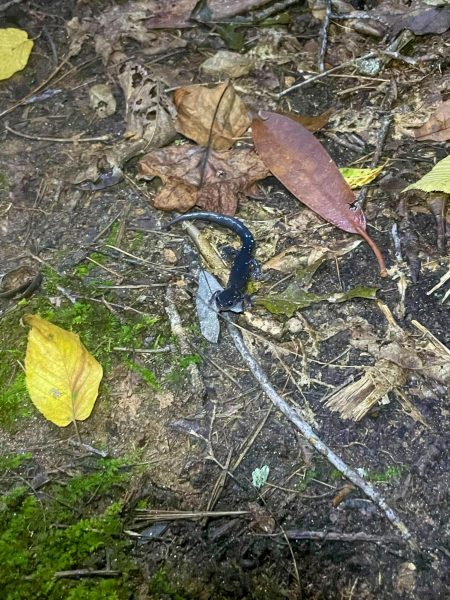
In the Honors College, Garrett Jackson uses his experience as a legal scholar to teach Shakespeare and the Law.
“I’ve always been interested in Shakespeare,” Jackson said. “In college, my professor brought up the theory that someone else wrote his plays. They all contain legal language, and someone who had a lot of knowledge of the law must have written them.”
In the class, Jackson analyzes plays attributed to Shakespeare that show legal metaphors as well as outright legal disputes.
“The Merchant of Venice” features concepts such as breach of contract, turn of phrase and detailed court scenes. Jackson uses Shakespeare’s plays to demonstrate legal approaches to modern issues. “Sir Thomas More” features plot lines about the legal rights of immigrants, an unprecedented concept in the 1590s when it was first performed.
Although he brings the authorship of Shakespeare’s work into question for the sake of the class, Jackson has no doubt of the significance of the plays and sonnets because of their innovation in delving into the complexity of the human condition.
“Humanity is a patchwork of people and personality,” Jackson said. “We’re all impacted by each other’s actions and things out of our control, but in the end we’re all human.”

